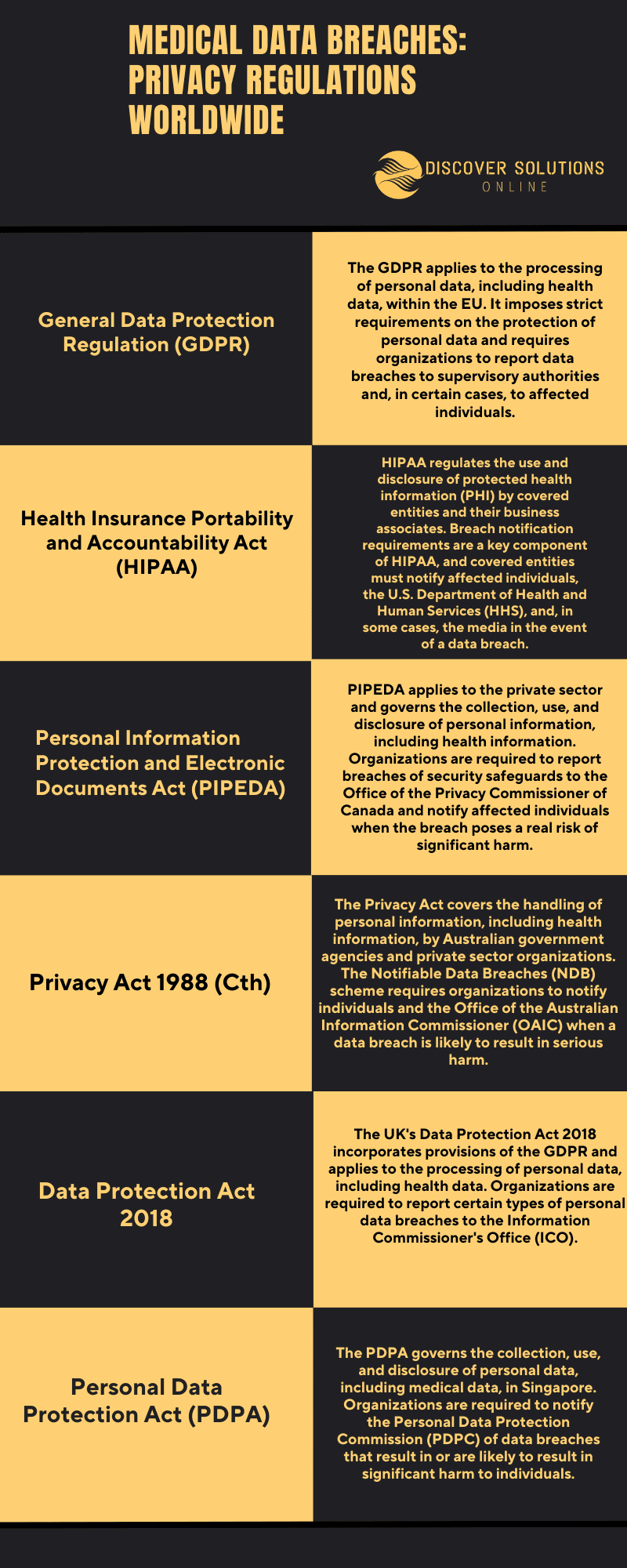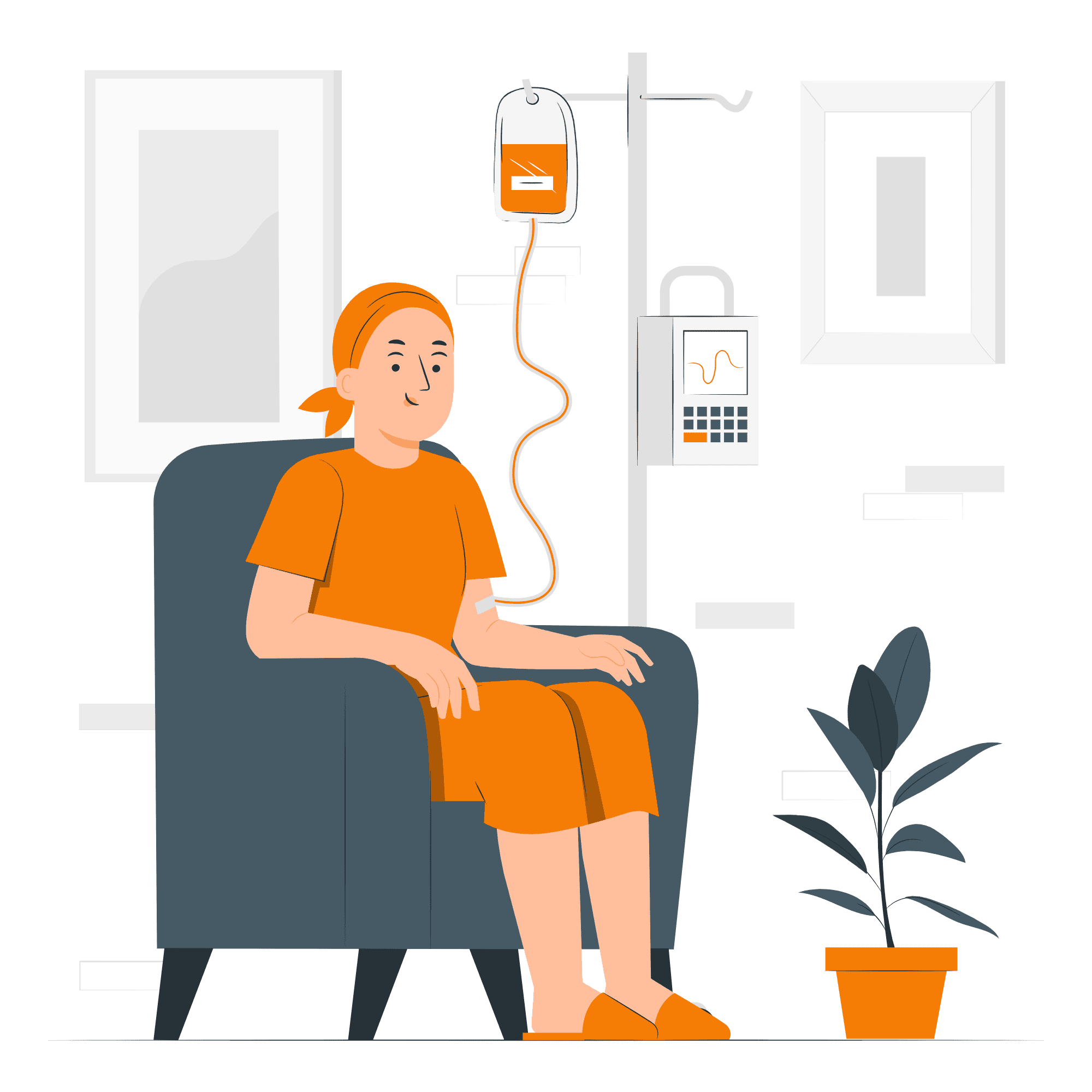The Scope of HIPAA and Other Privacy Regulations in the Wake of Medical Data Breaches
In an era where digitization has revolutionized the healthcare industry, the protection of sensitive patient information has become a paramount concern. The legal implications of medical data breaches loom large, with regulatory frameworks playing a crucial role in defining the scope of responsibilities for healthcare entities. Chief among these regulations is the Health Insurance Portability and Accountability Act (HIPAA), which, along with other privacy laws, establishes the standards and safeguards necessary to secure medical information.
Understanding HIPAA’s Dominance
HIPAA, enacted in 1996, stands as the cornerstone of patient data protection in the United States. Its primary objective is to safeguard individuals health information while ensuring the seamless flow of data between healthcare providers, insurers, and other entities involved in the healthcare ecosystem. The scope of HIPAA is extensive, covering individually identifiable health information held or transmitted by covered entities and their business associates.
Covered entities under HIPAA include healthcare providers, health plans, and healthcare clearinghouses. Business associates, such as third-party service providers handling patient data on behalf of covered entities, are also subject to its provisions. The law applies to both electronic and paper records containing protected health information (PHI). As a result, any unauthorized access, use, or disclosure of PHI triggers legal consequences, making medical data breaches a serious concern for those in the healthcare industry.
HIPAA’s Core Components
HIPAA’s Privacy Rule establishes national standards for protecting individuals medical records and other personal health information. Covered entities are required to implement measures to ensure the confidentiality, integrity, and availability of PHI. The Security Rule, another critical component of HIPAA, specifically addresses the technical and physical safeguards necessary to protect electronic PHI.
Notably, HIPAA mandates breach notification requirements. In the event of a breach compromising the security or privacy of unsecured PHI, covered entities are obligated to notify affected individuals, the Secretary of Health and Human Services, and, in some cases, the media. Failure to adhere to these notification requirements can result in severe penalties, emphasizing the gravity with which HIPAA treats medical data breaches.
Beyond HIPAA: Additional Privacy Regulations
While HIPAA dominates the healthcare privacy landscape, other regulations complement its efforts and extend protections. The Health Information Technology for Economic and Clinical Health (HITECH) Act, enacted in 2009, strengthened HIPAA’s breach notification requirements. It introduced tiered penalties based on the severity of the breach, encouraging healthcare entities to prioritize data security.
Furthermore, state laws often enhance the protections offered by HIPAA. Some states have enacted more stringent privacy regulations or expanded the definition of protected health information, amplifying the legal consequences for medical data breaches within their jurisdictions. Navigating this complex interplay of federal and state regulations requires healthcare entities to adopt a comprehensive approach to compliance.
In conclusion, understanding the scope of HIPAA and other privacy regulations is essential for healthcare entities seeking to mitigate legal repercussions. Compliance with these regulations is not only a legal requirement but also a fundamental step in fostering trust and confidence among patients. As the healthcare industry continues to evolve in the digital age, staying abreast of the ever-changing regulatory landscape is imperative to safeguard patient data and uphold the ethical responsibilities inherent in the provision of healthcare services.
The Causes and Consequences of Medical Data Breaches
In an era where technological advancements have revolutionized healthcare, the digitization of medical records has ushered in numerous benefits, including improved patient care and streamlined administrative processes. However, this digital transformation has also brought about an alarming increase in the frequency and severity of medical data breaches. Understanding the causes and consequences of these breaches is crucial for both healthcare providers and patients.
Cybersecurity Vulnerabilities
One of the primary causes of medical data breaches is the inherent vulnerability of digital systems to cyber threats. As healthcare organizations transition to electronic health records (EHRs) and interconnected networks, they become attractive targets for cybercriminals seeking to exploit weaknesses in security protocols.
Inadequate Security Measures
Insufficient investment in cybersecurity infrastructure and protocols can leave healthcare systems susceptible to attacks. Outdated software, weak encryption methods, and lax security practices create an environment where hackers can easily gain unauthorized access to patient data.
Ransomware Attacks
Ransomware attacks have become a prevalent threat in the healthcare sector. Cybercriminals deploy malicious software to encrypt medical records, demanding payment for their release. These attacks not only jeopardize patient data but also disrupt healthcare operations, potentially putting lives at risk.
Third-Party Vulnerabilities
Healthcare providers often rely on third-party vendors for various services, such as data storage and analytics. Breaches can occur if these vendors do not uphold stringent security standards. The interconnected nature of healthcare ecosystems means that a breach in one entity can have cascading effects on others.
Consequences of Medical Data Breaches
Medical data breaches pose severe consequences for patients and healthcare organizations, jeopardizing privacy, enabling identity theft, disrupting care, and incurring substantial financial losses. Here are some consequences of medical data breaches:
Compromised Patient Privacy
The most immediate consequence of a medical data breach is the compromise of patient privacy. Personal health information is sensitive and should be treated with the utmost confidentiality. Breaches erode patient trust, leading to concerns about the security of their medical data and the potential misuse of sensitive information.
Identity Theft and Fraud
Stolen medical data can be used for identity theft and fraudulent activities. Criminals may exploit compromised information to obtain medical services, prescription drugs, or even commit financial fraud. The consequences for affected individuals can extend far beyond the initial breach, leading to significant financial and emotional distress.
Legal and Regulatory Repercussions
Medical data breaches trigger legal and regulatory consequences for healthcare organizations. Violations of privacy laws, such as the Health Insurance Portability and Accountability Act (HIPAA) in the United States, can result in severe penalties, including fines and legal actions. Organizations may also face reputational damage that can be challenging to repair.
Disruption of Healthcare Services
Ransomware attacks, in particular, can disrupt healthcare services, impacting patient care, emergency services, and routine medical procedures. The inability to access critical patient information can lead to delays in treatment, misdiagnoses, and potential harm to patients.
Financial Costs
The financial fallout from a medical data breach is substantial. In addition to potential fines, organizations must invest in remediation efforts, including cybersecurity upgrades, forensic investigations, and public relations campaigns to restore trust. These costs can have long-lasting implications for the financial health of healthcare institutions.
In conclusion, the causes and consequences of medical data breaches underscore the critical need for healthcare organizations to prioritize robust cybersecurity measures. As technology continues to advance, a proactive approach to security is essential to safeguard patient privacy, maintain trust, and uphold legal and regulatory obligations in the ever-evolving landscape of healthcare data management.

The Legal Remedies Available to Victims of Medical Data Breaches
The occurrence of medical data breaches raises significant concerns not only for individuals but also within the legal landscape. When sensitive medical information falls into the wrong hands due to a breach, victims are left grappling with the potential consequences. Fortunately, there are legal remedies available to address the aftermath of such breaches and provide victims with avenues for justice.
Health Information Privacy Laws
ne of the primary legal frameworks addressing medical data breaches is the Health Insurance Portability and Accountability Act (HIPAA) in the United States. HIPAA establishes strict standards for the protection of individuals’ health information and provides patients with specific rights regarding their medical data. When a breach occurs, individuals have the right to file a complaint with the Department of Health and Human Services (HHS), which can investigate and impose penalties on the responsible entity. The severity of the penalties depends on factors such as the entity’s level of negligence and the extent of the breach.
Civil Lawsuits
Victims of medical data breaches can pursue legal action through civil lawsuits against the responsible parties. These lawsuits may be based on various legal theories, including negligence, breach of contract, or violations of state privacy laws. Plaintiffs in these cases often seek damages for actual harm suffered, such as financial losses or the costs associated with mitigating the effects of identity theft. Courts may also award punitive damages to deter future breaches and punish the responsible entities.
Class Action Lawsuits
In cases where a medical data breach affects a large number of individuals, class action lawsuits may be initiated. These lawsuits consolidate the claims of multiple victims into a single legal action, streamlining the process and ensuring that the responsible entity is held accountable for widespread harm. Class actions provide a collective voice for victims and can result in more significant compensation for affected individuals.
State Data Breach Notification Laws
Many jurisdictions have enacted laws that require organizations to notify individuals of data breaches involving their personal information. These laws typically mandate prompt notification to affected individuals, allowing them to take necessary steps to protect themselves from potential harm. Victims who do not receive timely and adequate notification may have legal recourse against the responsible entity.
Regulatory Investigations and Enforcement Actions
Regulatory bodies, such as the HHS Office for Civil Rights in the U.S., have the authority to investigate medical data breaches and take enforcement actions against entities found to be in violation of privacy laws. These actions may include imposing fines, requiring corrective measures, or entering into settlement agreements with the responsible parties.
In conclusion, the legal remedies available to victims of medical data breaches are multifaceted, encompassing both federal and state laws. The evolving nature of technology and healthcare necessitates a vigilant legal framework to protect individuals and hold entities accountable for safeguarding sensitive medical information. As the digital landscape continues to advance, it is imperative for lawmakers and legal professionals to adapt and refine these remedies to address emerging challenges in the realm of medical data security.





